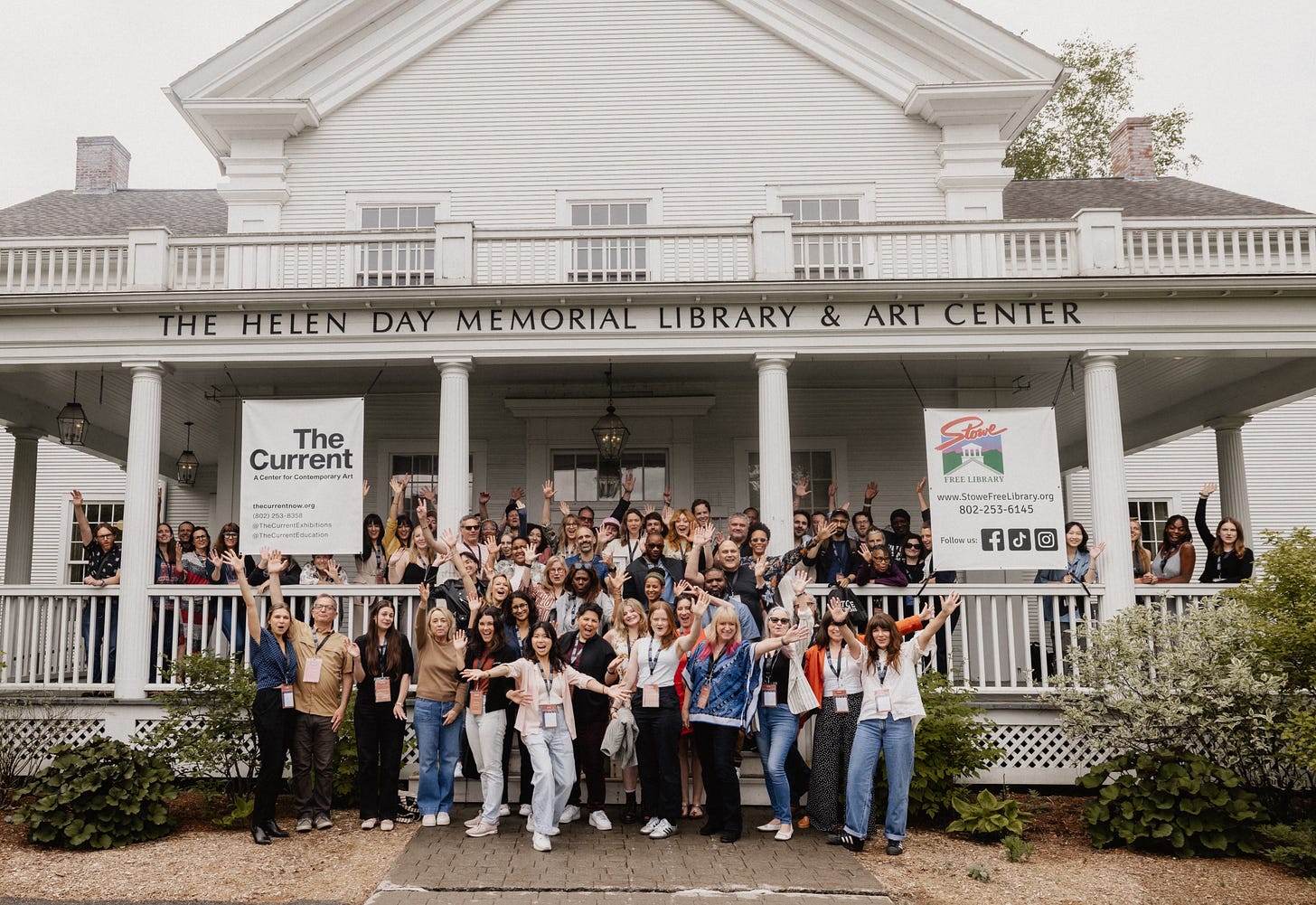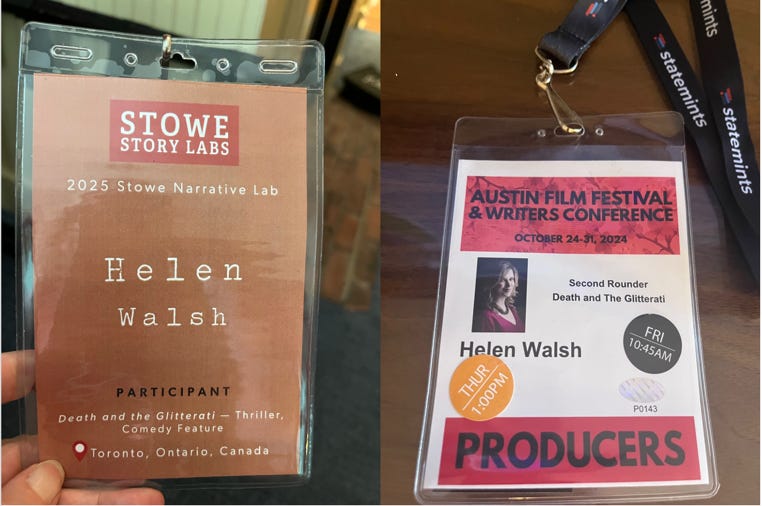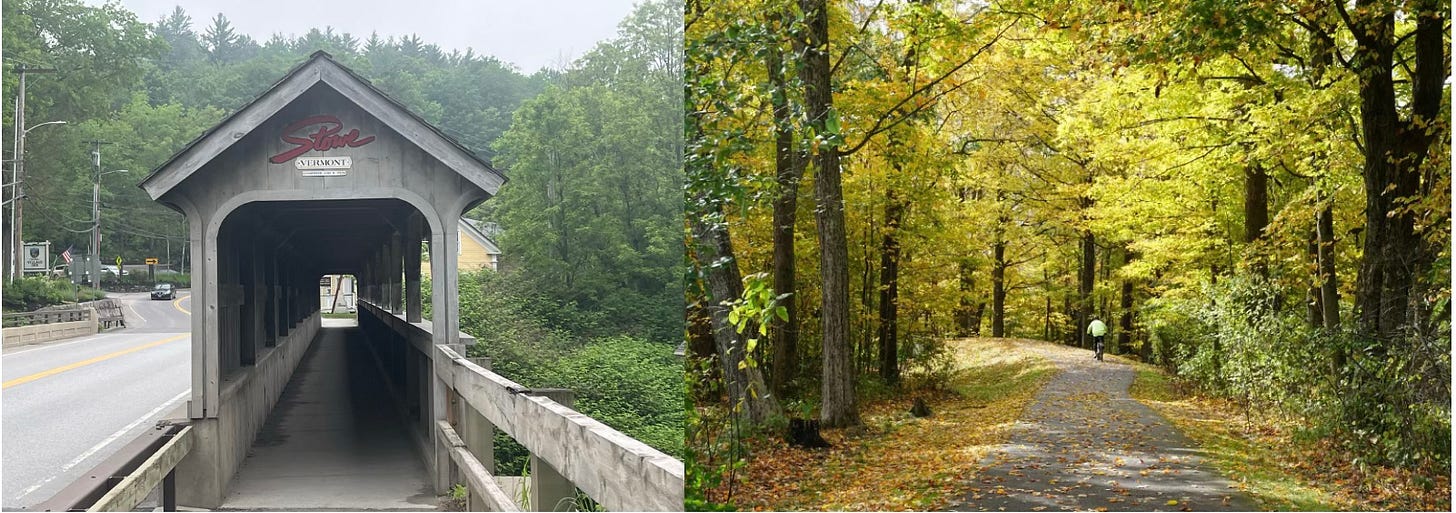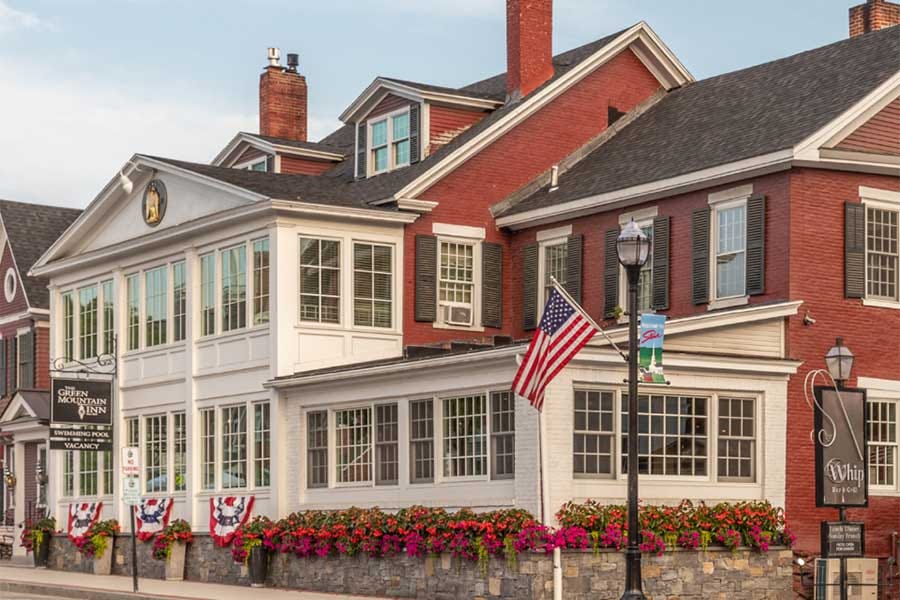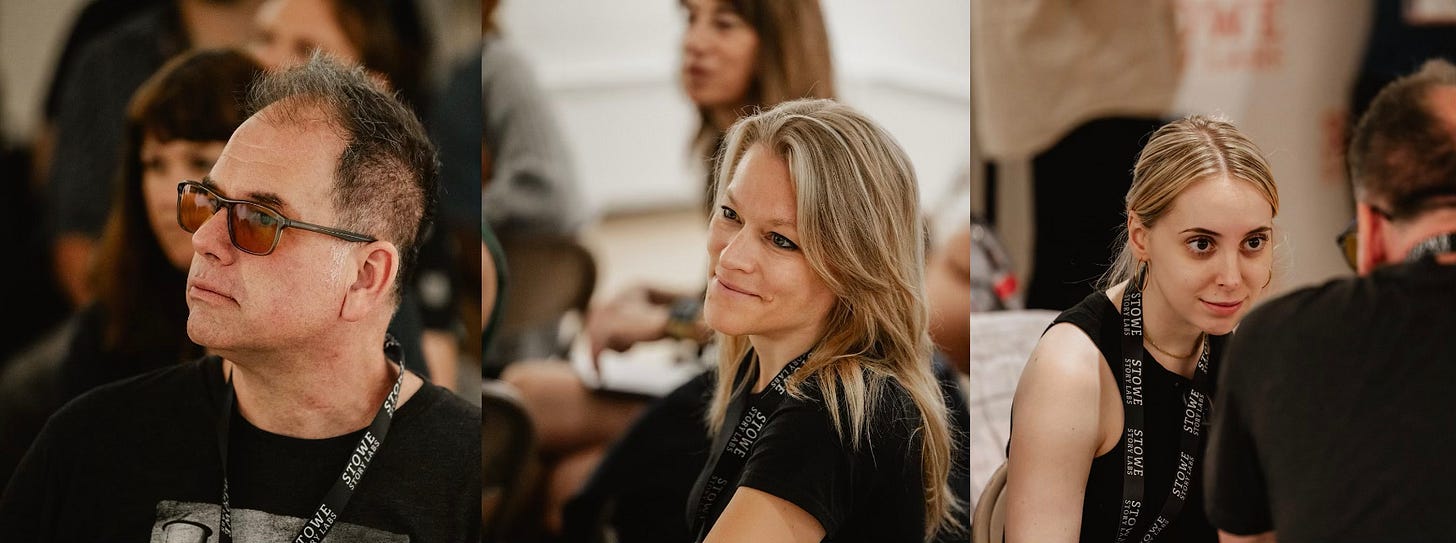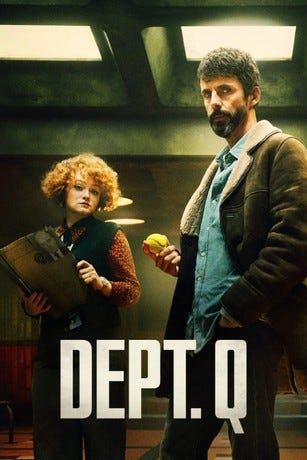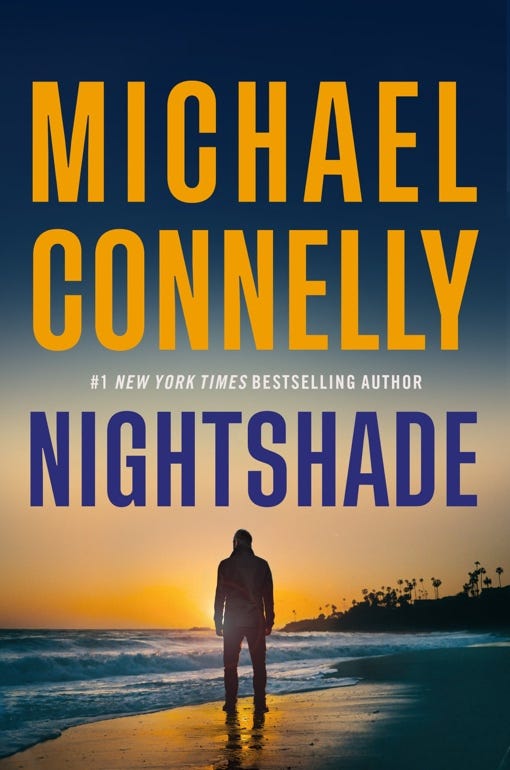The Hills Are Alive with the Sound of Pitching.
Edition 35: Screenwriting in the Green Mountains of Vermont.
I can see why the Von Trapp family sang their way to a permanent home in Stowe, Vermont after escaping the Nazis. Those Green Mountains are some kind of beautiful. (Edelweiss... Edelweiss...)
In early June, I travelled to Vermont for the four-day intensive Stowe Narrative Labs, which brings together top emerging screenwriters, filmmakers, and creative producers to develop a project, learn craft and pitching skills, and build a strong network of peers, mentors and colleagues.
And what an intense, collaborative experience it was.
Stowe Labs, like Sundance Labs, runs annual competitions to select participants. I chose to apply to Stowe because it has a strong television writing component, an excellent reputation and robust alumni programs.
‘You need to be where the industry is’ is an adage you frequently hear when studying screenwriting. And that means Labs, Writers Conferences/Competitions (often attached to a film festival), Film Markets, etc.
It’s a relationship business and as a newbie, you need to build them from scratch. While breaking into the industry has always been hard, it’s even more so now, for several reasons.
The collapse of the Peak TV (generally considered to be 2013 to 2022 when you couldn’t swing a cat for the amount of original content being commissioned by the streaming services). Covid, another nail in the coffin of a broken film distribution system. The 2023 Writers Guild and Actors Guild strikes in the US. The changing nature of consumption by audiences.
More than half of all screenwriters are out of work and looking, while the size of writers rooms have shrunk. (They were always larger in the US, employing 12+ writers a show. In Canada, they are smaller and the UK hasn’t traditionally used them.)
Corey Trent Ackerman, a LA-based manager/producer, says films have begun to be greenlit again in the past six months, although television remains difficult. He recommends his TV writer clients now have a film script in their portfolio, alongside 4-5 pilot scripts for original shows they have created.)
But all cultural work is challenging. And while novels have lower barriers to entry than writing TV (the latter costs tens of millions and there is no independent distribution platform), finding a sizeable audience for a fiction writer is hard. So you need to write what you love and let the process be the pleasure.
When I was accepted into Stowe in March, media stories abounded about the difficulty of crossing the US border. Whereas once upon an election ago, I might have driven down (about 7 hours). Instead, I spent about the same amount of time flying west to Detroit, only to connect back east to Stowe.
When I nervously got to Toronto Pearson, there were only a handful of us preclearing US customs, versus the normal long lines. The agent couldn’t have been friendlier, asking me questions about my writing and suggesting I stay longer in Vermont to have a vacation.
The first night, the bartender in my hotel, the charming Green Mountain Inn built in 1833, apologized to me as a Canadian on behalf of Vermonters. Vermont did not vote for President Trump, he reminded me. (In fact, it was the state which gave the Democrats their largest margin win in 2024.)
“We miss our Canadians,” the bartender said, voice trembling with emotion. (Vermont and Québec share a border.) “Thank you for coming.” A sentiment I heard repeatedly throughout this small town.
Vermont was an independent republic for fourteen years before joining the United States; that independence is reflected in their political culture and values.
Hometown tours – a local alternative to Uber – organized the pick-up of Lab participants who came in from across the US, four of us from Canada, as well as the UK and Ireland.
Keith was waiting to drive me the forty-five minutes from Burlington airport to my Stowe hotel; along with the ALSO sisters, twin horror filmmakers originally from Spain who live in Salt Lake City and write, direct, produce and live together.
Turns out Keith self-published a memoir in 2017 after Jesus saved him from death. (And in fact, Jesus was right there on the dashboard in the form of a figurine.) He spent the drive interrogating me about how to find a publisher for a revised version.
When we got out, I apologized to the twins for dominating the conversation. “Don’t be ridiculous,” they said in unison. “We spent the whole drive taking notes. We’re going to ask for your help, too.”
As part of Stowe Narrative Labs, you are assigned to a peer-to-peer group of 4 screenwriters with whom you meet daily to provide feedback on each other’s scripts.
My group – Darren, Ruby, Kim and me – came from different backgrounds. Darren had spent decades running some of the largest advertising agencies in the world before pivoting to screenwriting a couple years ago and relocating from NYC to LA. He won Final Draft Big Break (one of the top 5 screenwriting contests in the US) with his first film script and writes very funny, edgy comedy.
Ruby, a New Yorker in her 20s, works as an intimacy coordinator for film/tv and writes up a storm. She’s particularly interested in animation, although the project she brought was sit-com. She’s placed in several contests over the past year.
Kim lives two hours outside Seattle. A neuro-biomedical engineer with a patent on a brain computer interface device, Kim is also a writer and director, and a video game and Magic (card game) designer. She, too, brought a half-hour sitcom to the Lab.
And I was there with DEATH AND THE GLITTERATI, a serialized darkly funny thriller whose first season is adapted from my upcoming second novel.
I really enjoyed my group. Their critiques were excellent, and we’ve continued our peer mentoring digitally – reading and providing feedback to each other. Stowe places an intense focus on alumni keeping connections to the organization and to each other.
There is a dedicated mail list, Facebook page and Slack channel. Community job board, an alumni map of the world so you can connect when travelling, organized meet ups and promotional support at film festivals, a film channel, automatic entry to their writer retreats, labs and writing programs and more. They also offer fiscal agency for select alum projects (to flow tax deductible donations or sources grants).
My Toronto writing community is terrific. But I realized while in Stowe that it’s primarily literary, given my background. So if there are any screenwriters reading this who want to have a coffee date, DM me!
(Ditto for those travelling to attend TIFF, Content Canada and/or Access Canada Summit in early September; I will be at all three.)
Edinburgh + Department Q
Next month, I’m off once again to the Edinburgh Festivals. A shorter trip than normal, but I’ll be grateful to be back in a place I love so much. To have tea with my friends Clare and Mark in their beautiful back garden. And to fill my creative brain with author talks, theatre, opera, dance and film.
Plus two days in London enroute for some meetings and to catch up with friends.
Speaking of British television (and why not, the writing is so good). I binge watched Department Q recently on Netflix.
The writing and acting is superb, and it’s rare in North American television that you get such an asshole character whose redeeming qualities emerge very slowly.
But having said all that, there was something vaguely odd about it, and it wasn’t until I read about the show, that I understood what had disquieted me (beyond the moments that, as a claustrophobe, I had to fast-forward through).
It’s based on the book series by Danish writer Jussi Adler-Olsen but relocated to Edinburgh for this adaptation. (There’s also been a successful Danish film series and the book series itself has sold into 30 countries). Crime travels so well across different territories because it is ultimately about larger sociological questions.
But the brutality of Nordic Noir doesn’t comfortably fit a Scottish environment, at least not for me. And in age where we are seeing IP adapted across borders, I find it interesting to consider how sensibilities transpose – or don’t – from community to community.
And one final recommendation before I go. Michael Connelly is a terrific crime writer. His series include Harry Bosh, Mickey Haller (the Lincoln Lawyer) and Renée Ballard (debuting as a new TV series on Prime this week).
I just read Nightshade where he introduces Detective Stilwell, a cop outlawed to Catalina Island after his refusal to look the other way at departmental wrongdoing.
I’ve always wanted to visit Catalina, 35km out from LA and accessible by ferry. Those kind of small, insular communities are popular locations for detective series. Often, these mysteries are ‘cozy.’ Not true for Connell and for that I was glad. I highly recommend it.
Bye for now. Thanks for reading this thirty-fifth edition of Letterbox! Until next time, friends, which will be sooner than the four-month gap from the last newsletter.
It was a crazed spring writing and also organizing a 20th anniversary gala for Diaspora Dialogues. Oh, and I fit in a little trip to Paris and the Cote D’Azur to celebrate my birthday, which I will write about in a future newsletter.)


